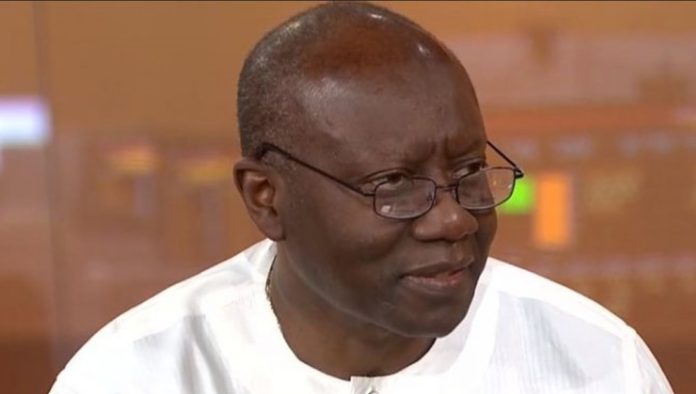
The Standard Bank African Markets Revealed (AMR) report has lowered Ghana’s gross domestic product (GDP) growth forecast from an initial 3.1 per cent to 2.6 per cent for end of year 2022.
Although GDP growth averaged 4.1 per cent in the first half of the year, the report noted that unfavourable base effects may moderate growth in the second half of the year.
This is lower than the government’s revised GDP growth of 3.7 per cent in 2022.
Subsequently, the AMR report also revised its 2023 GDP projection from 4.1 per cent to 3.3 per cent.
It said external funding remaining out of reach was likely to weigh down growth, with expenditure on development, therefore, likely to be scaled back in the next few years.
Against this background, it warned that should the government even secure an IMF deal in the next six months, expenditure on capital projects might have to be postponed in order to consolidate public finances.
GDP growth
Regarding GDP growth for second quarter, it rose to 4.8 per cent year on year in quarter two of 2022, from 3.4 per cent in quarter one.
Growth in second quarter was supported by the broader industrial sector which grew at 4.4 per cent, from a contraction of 0.5 per cent year-on-year (y/y) in quarter one of this year.
The mining sub-sector spearheaded this growth by expanding by 4.4 per cent y/y in quarter one, from a three per cent y/y contraction in quarter one of last year.
Net exports, underpinned by oil and gold, have been trending upward since March, 2022.
Gold recovery
The AMR report said it still expected gold production to recover further in 2022 after the sharp decline in 2021, following the closure of key mines.
It also pointed out that while higher oil prices had boosted growth in the oil sub-sector, with investment in the oil sector still expected to remain subdued over the coming year, and global oil prices likely to ease, growth in this sector may moderate in 2023.
Gold exports grew by 13.1 per cent y/y, to $3 billion in June, 2022, while oil exports receipts rose by 61.3 per cent y/y, to $2.8 billion.
Oil export earnings are expected to moderate in 2023 as international prices soften further, while gold prices too may trend down over the coming year, although domestic production may recover further and support goods exports.
Inflationary pressures
The report also noted that acute inflationary pressures would drain private consumption expenditure in the second half of the year,
In response, the Bank of Ghana’s Monetary Policy Committee (MPC) has aggressively hiked the key policy rate.
The August emergency meeting saw the MPC raise the policy rate by 300 bps, to 22 per cent, while the primary reserve requirement for commercial banks was also hiked from 12 per cent to 15 per cent.
The AMR report said it still expected the MPC to raise the policy rate by a further 200-300 bps by December this year.
Further rate hikes are, however, expected to restrain commercial banks’ private sector lending due to pervasive asset quality concerns.
External debt constraints
The report further highlighted that constraints in issuing external debt have been subduing goods imports in 2022, and supported the narrowing of the trade balance, as the government reduced foreign-financed development expenditure.
Although the government may secure external financing in 2023, the report said fiscal consolidation under a mooted IMF programme would further limit capital goods expenditure.
The BoG’s gross FX reserves fell to US$7.68bn (3.4 months import cover) in June, 2022 from US$8.80 billion (3.9 months) in March and US$9.76 billion (4.4 months) in January.
Furthermore, net FX reserves declined to $3.58bn in June from US$6.09 billion in January 2022.
IMF agreement
The report noted that while its base case foresees at least a staff level agreement with the IMF for a funded programme worth around US$3.0 billion between December 2022 and April 2023, the disbursement may depend on the requisite debt restructuring requirements and the concomitant timeliness.
Should an IMF deal indeed be secured over the next six months, financing from other multilateral sources may thereby be unlocked. However, issuing a Eurobond seems unlikely until 2024-2025.”
“Also, with an IMF programme, non-concessional borrowing curbs may come into effect,” the report noted.

